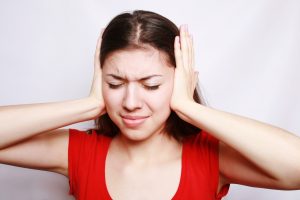
Hyperacusis can affect anyone, but it is most common in children. In some cases, it may only be a minor nuisance, but at times it could negatively impact the quality of life of the affected individual.
Hyperacusis stems from a problem in the way the brain perceives noise. As a result, one may experience pain and discomfort. Patients with hyperacusis have an intolerance to sound. Some sounds may seem much louder than they actually are.
Daily functioning can be difficult for someone with hyperacusis. Something as simple as running water or the sound of dry leaves may bring about much discomfort. Some patients find these simple sounds so disturbing that their daily living becomes a constant challenge.
Causes of hyperacusis
Hyperacusis is not a common occurrence, only affecting one in 50,000 people. Hyperacusis is not something you are born with, it is a condition that develops over time. Common causes of hyperacusis include a head injury, ear damage from toxins, Lyme disease, air bag deployment, viral infections, and temporomandibular joint (TMJ) syndrome.
Neurological conditions may cause hyperacusis, too, including post-traumatic stress disorder, chronic fatigue syndrome, Tay-Sachs disease, some forms of epilepsy, valium dependence, depression, and migraine headaches.
Signs and symptoms of hyperacusis

- Feeling uncomfortable
- Covering the ears or moving away from the sound
- Feeling anger, distress, or tense
- Experiencing pain
Some people may develop a fear to certain sounds because of the associated discomfort. This may lead to social isolation, affecting one’s professional and personal life.
Tinnitus and hyperacusis
Tinnitus is a constant ringing, buzzing, or humming in the ear in the absence of external sounds. Like hyperacusis, tinnitus can also negatively impact one’s quality of life.
Hyperacusis is strongly linked to tinnitus. Nearly 36 million Americans suffer from tinnitus, and one in every 1,000 also has hyperacusis. It is possible to have tinnitus and hyperacusis at the same time.
Neither tinnitus nor hyperacusis are curable, but there are treatments for both. Some of the treatment options for hyperacusis and tinnitus include directive counseling and sound therapy, which helps patients tolerate the constant ringing sound and improve their tolerance for sounds.
Diagnosis and treatment options for hyperacusis
To be properly diagnosed with hyperacusis, a patient must be fully evaluated by an otorhinolaryngologist (ear, nose, and throat doctor). During the initial consultation, the doctor will perform an audiologic evaluation, review your medical history, and refer you for a medical exam.
Treatment for hyperacusis is not specific and can vary depending on severity of the condition. Sound therapy may be useful to help you build tolerance to sound and help to retrain the auditory processing center of the brain. Sound therapy is not an overnight treatment and it can take up to 12 months.
Other treatments for hyperacusis include cognitive behavioral therapy, counselling and education inform the patient on their condition and support them along the way, and lifestyle changes like mastering relaxation techniques, listening to calming music, not avoiding noisy areas, and not using earmuffs or ear plugs.